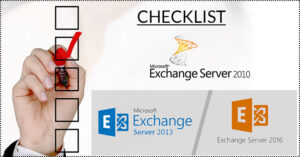If you are a Microsoft Outlook user, then you will surely be familiar with the OST and PST Files. OST and PST both are the data storage file of Outlook. The OST files save data for offline use while PST stores data in the client’s local disk. OST files can be converted to PST file format and vice versa when needed. Let’s know about it all comprehensively:
Firstly know, what is Outlook?
Outlook is a part of the M.S. Office suite; it is an Email client application that facilitates calendar, task manager, contact manager, journal, note-taking, etcetera. Microsoft Outlook can be used as a stand-alone application or can be used to work with Exchange Server and Microsoft SharePoint Server for the many users in an organization.
What is PST?
In Microsoft Outlook, Personal Storage Table (PST) stores the copies of the messages, contacts, calendars etc., on the user’s system from the account configured on the Outlook. PST is an Open file format. When a user creates an account in Outlook, a default PST file is automatically created. A PST file also allows securing from unauthorized access with the password.
What is OST?
Offline Storage Table (.ost file) is an offline Outlook data file that stores an offline copy of the Outlook data item on the server. OST file allows users to work even in the absence of the server connection. Users can edit the data, save emails in the draft, add and delete, etcetera. Whenever the user works in the absence of a server, a carbon copy of the mailbox is created by M.S. Outlook and stored locally on the user’s system.
Difference Between Outlook OST and PST file:
OST is the offline folder created by the M.S. Outlook and Server to store offline copies of data, whereas PST is not created by the Outlook or Exchange Server. Users create it to store emails, contacts and calendar entries, etcetera. PST files are friendly for backup, as you can store them anywhere or easily transfer them from one system to another.
- You can work in an OST file even in the absence of connection with the Exchange Server (when Offline), and when the connection is established, it synchronizes itself with the exchange server mailboxes, while PST doesn’t allow this.
- The OST files only support Microsoft Exchange Server, while PST files are compatible with other services.
- To solve the minor problem and repair PST, the built-in utility Scanpst.exe is used, whereas to repair OST, built-in Scanost.exe.
OST vs PST file format Comparison Chart
| Server Compatibility | OST files can be only synchronized with Exchange Server. | PST files are compatible with several email servers, including Exchange Server. |
| Synchronize efficiency | Allows access to mailbox items even when the system is down or problems with the network. | It doesn’t let you access your mailbox when you’re not online. |
| Accessibility | Only the original MAPI profile can be used to get to it. | Any Outlook account can easily import a PST file. |
| Security | By default, they are encrypted with the MAPIEntryID GUID key | Not locked down but uses CRC32 algorithm to protect PST files with password. |
| Corruption Issues | Common problems make it easy for things to go wrong and get damaged. | PST files are more resistant to corruption and damage. |
| Repairing Tool | With the ScanOST.exe tool, errors can be fixed. | Using the ScanPST.exe tool, errors in PST files can be fixed. |
Convert or Repair a Corrupted OST file into PST Format:
If needed, you can convert OST files into PST. In scenarios such as the unexceptional crash of server because of malicious software, virus attack, power failure etc., converting OST to PST file format relieves.
- By converting OST to PST, the migration of data from one place to another place or system becomes easier.
- Converting OST data into PST file format helps if accidentally Exchange server mailboxes data is somehow deleted.
- Along these, there may be various situations when the user needs to Convert OST to PST file format. One can convert OST to PST files by using the Manual method. But it is not recommended as it asks for prior technical knowledge, and it is not safe nor professional. The manual method comes with limitations.
Repair or Convert OST File in PST Using Professional Software:
To convert OST to PST genuinely, a professional third-party tool is a must. Shoviv OST to PST Converter is the one that facilitates all the user-centric facilities. It makes OST to PST conversion very easy and proficient.
- It supports all the versions of Outlook and Windows O.S.
- Can Save OST items into various formats like HTML, EML, vCal, vCard, MSG, etcetera.
- Offers Filter option, Preview option, and Search option to facilitate users.
- The software can export multiple OST files into Office 365, PST, and Live Exchange without any hassle.
- Along with many other features, it also provides a free demo/trial version to check its working.


Conclusion
Outlook uses OST and PST files both get stored on the local drive, but both have different responsibilities. In cached exchange mode, like OST files synchronize with Exchange Server, whereas PST files make data sharing and migration easy for us. Also, PST files are the most reliable file format to store a backup of email clients. There is no doubt that PST file is a much better file format than OST files, which is why several users convert OST to PST format.
Frequently Asked Questions
A. Yes, you can convert OST to PST format, and several Microsoft professionals suggest using Shoviv’s automated tool for this.
A. It depends on the Outlook version you’re using; you can visit this blog for a complete guide.
A. Yes, you can delete an OST file, but make sure you have a backup of that OST file, or its replica is connected with the Exchange Server.
A. If your OST file gets corrupt and you want to view its data, then you can use the Shoviv OST viewer. If you want to open the corrupted OST file in Outlook, the only way is to convert it into PST format.
Red popular outlook topics:
- How to Backup and Restore Emails in Webmail? - March 25, 2025
- How to Migrate Outlook to New Computer? - February 15, 2025
- Fix If Outlook Cannot Display the Specific Folder Location - February 1, 2025


